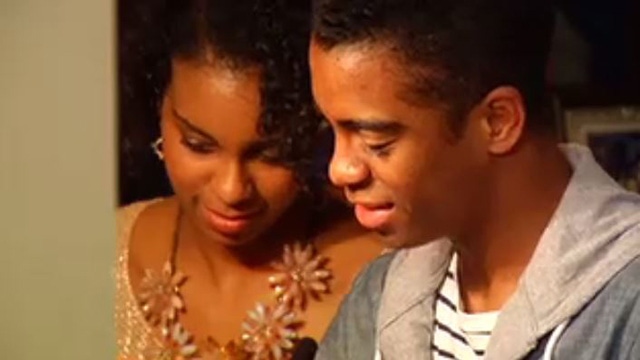‘The Conversation’: Parents discuss keeping their African American sons safe
[anvplayer video=”3553300″ station=”998122″]
5 EYEWITNESS NEWS is taking a deeper look at the experiences some African American families say they’ve had with police officers when they haven’t done anything wrong.
Many black families call it "the conversation." It’s a talk parents usually have with their African American sons. It’s typically informal, it’s ongoing and it’s not often talked about in public.
Dangerous and deadly encounters with police across the United States are prompting a renewed focus on interactions between young black males and police.
"There is a high sense of concern and fear, around what may happen to whom, next," Michael Jones said.
Michael and Jocelyn Jones, of Eden Prairie, want to make sure their 15-year-old son, Ethan, is safe.

Mario and Sparkle Wimberly, of Burnsville, want the same for their 8-year-old son, Kamran. Their armor is "the conversation."
"You know I know that some of my neighbors, they don’t have to have these conversations with their kids," Mario Wimberly said about what to do, and not do, around law enforcement.
He went on to say, "We kind of spoon-feed it to him because he doesn’t understand. He’s like, ‘Why would someone profile me, or think I’d be doing something? Dad, why did that happen to you? Why did they do that do you?’ Well, that’s a lot, that’s a heavy concept for an 8-year-old to grasp."
"This is a conversation that’s been going on since our parents were children," Jocelyn Jones said.
This is the message: "Just be aware and cautious of how you are, and you have to keep that in your mind 100 percent of the time," 15-year-old Ethan Jones said. "Not walking with your hands in your pocket. Just always have your hands out, because if your hands are out, then there’s nothing in your hands."
When asked if anything goes through his mind or gut when he sees a police officer, Ethan Jones said, "I know right away that there’s a different expectation of how I need to act in general, because I will be perceived differently. All of my actions will come off differently than the way (of) my Caucasian friends."
Members of these families say neither their education nor their accomplishments have shielded them from getting profiled.
Michael Jones shared an experience: "I said, ‘Hi officer. How can I help you?’ And we started getting what seemed like pretty bizarre questions."
Mario Wimberly says his experiences have been very similar.
"We’re pulled over, everything always checks out."
Despite that, the Wimberlys are teaching their son, Kamran, he can be a police officer like his uncle who is part of law enforcement in northern California.
"I would just think they were like superheroes, and like Superman or something like that," 8-year-old Kamran Wimberly said about his uncle and other police officers.
Nevertheless, Jocelyn Jones said she believes "it doesn’t matter where we come from, our education, economic status. As a black people, we are all in this together."
Dr. Keith Mayes, associate professor of African and African American studies at the University of Minnesota said, "One of the areas that’s striking, is African Americans, particularly males, make up a small percentage of the population, whether it be in cities or even suburbs – the population of black males in the suburbs is even less but the statistics show that they are stopped beyond their numbers in the population."
A study of traffic stops in Minnesota in 2002 found black and Hispanic drivers were stopped and searched at much higher rates than white drivers, even though police were more likely to find contraband with white drivers. There hasn’t been another study like it in Minnesota since then. But findings throughout the country in recent years are similar.